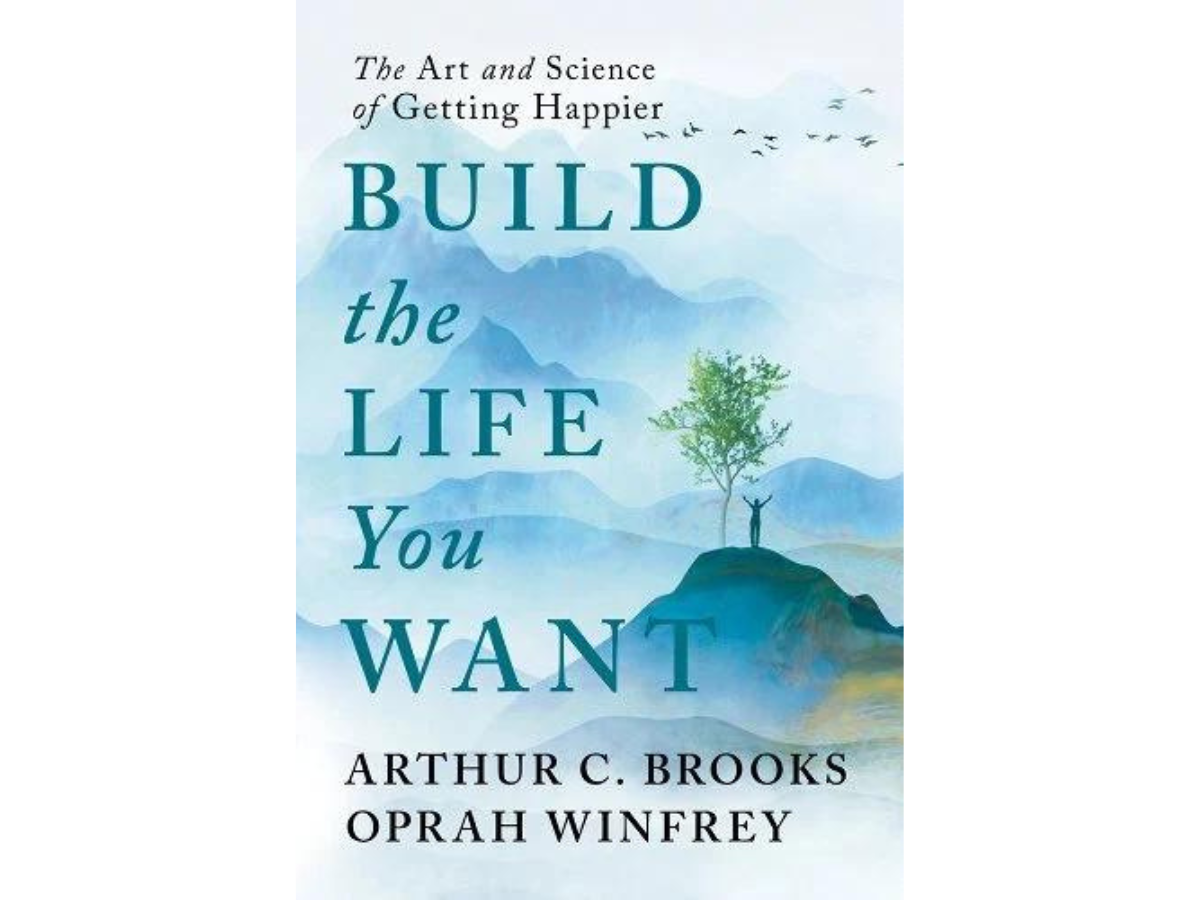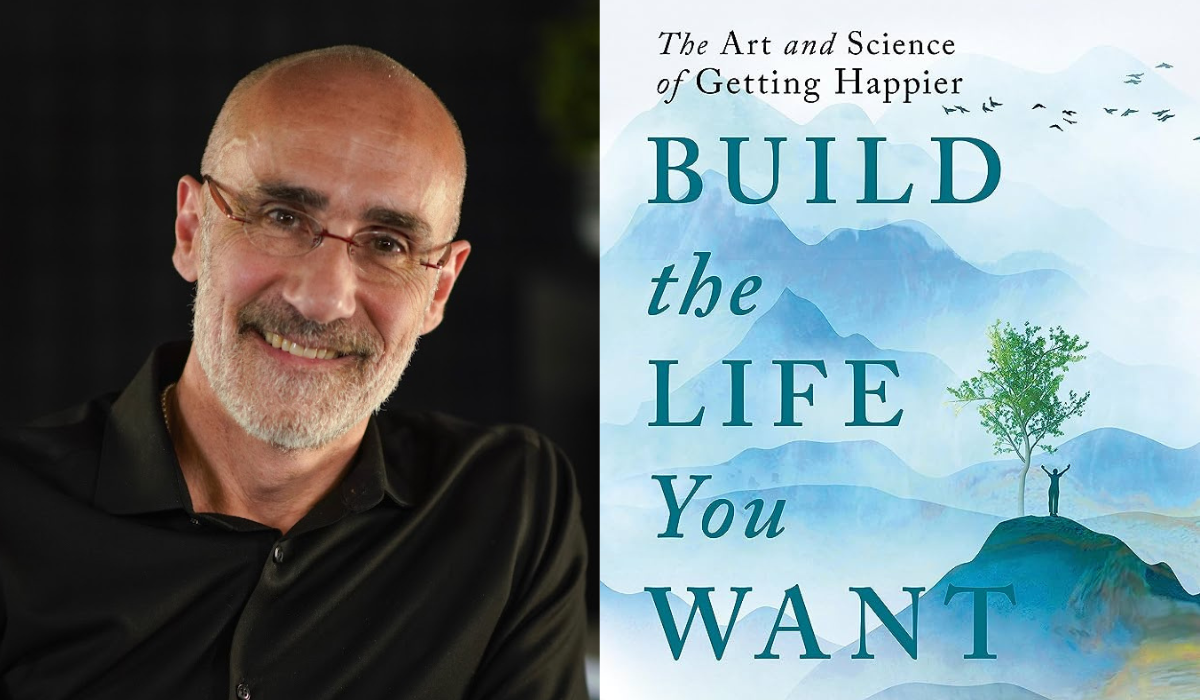Happiness in This Life is Impossible—Arthur Brooks Explains Why That’s Actually the Best News Ever
When Oprah Winfrey and Arthur C. Brooks first sat down to talk about writing a book about happiness, they asked a simple question: “What do we want people to do?”
The answer was twofold: First, they wanted us to know that our happiness doesn’t have to be left up to chance. They wanted us to feel empowered to manage our happiness and give us some tools to help us do just that.
Second, they wanted to start a happiness movement.
“There’s too much unhappiness in this world, and the reason is because we’re leaving our happiness up to chance because we think it’s a feeling,” Brooks told The Sunday Paper. “A happier world starts with a hunger for happiness. It starts with each of us taking happiness into our own hands and teaching it to others.”
Tune in this Tuesday, September 12th, as Maria Shriver goes live on Instagram with both Oprah and Arthur about their new book, Build the Life You Want: The Art and Science of Getting Happier at 10:30 a.m. (PST)/1:30 p.m. (EST).
This week, The Sunday Paper asked Brooks for a sneak peek at some of the book’s key themes, how he’s personally learned how to take his happiness into his own hands, and more.
A CONVERSATION WITH ARTHUR BROOKS
Happiness is something so many of us strive toward. However, you say happiness in this life is impossible, and that this is actually the best news ever. What do you mean?
People will say they want to be happy. But they recognize that being happy every single moment in your life would be like having the Midas touch—completely impractical and actually a nightmare. There are a few reasons for this.
Negative emotions keep you alive and are completely appropriate to the circumstances that are coming at you. If bad things happen and you didn’t react, you’d die. So, people say they want to be happy, but they actually don’t, and then they feel frustrated because they don’t feel like they’re attaining happiness.
Too often, we talk about happiness like it’s some mythical destination that nobody ever reaches. Which means people are trying to get something that they can’t get, and they’re frustrated that they’re not getting it. That’s the wrong way to think about it.
Happiness is not actually a destination, it’s a direction. The research is clear: You can get happier, but you can’t actually get perfect happiness. And thank God for that, because then you’d get eaten by a tiger.
As Oprah says, the goal isn’t happiness, that goal is happierness. What we can achieve is happierness—a state of progress where every day we’re learning a little bit more and growing a little bit more and perceiving the progress is itself a source of joy. So the fact that bad things are happening is not bad news. You can let it go. You can relax. And the idea that you’re actually not happy—and you feel guilty because you’re not as happy as you feel like you should be—you can let go. Just learn, adopt your habits, change your life, share the ideas, and go for happierness, which is the real goal.
What are some of the biggest reasons so many of us feel like no matter what we do, we can’t get happier?
There’s a big mistake people make all the time, where it feels like their happiness—or even their happierness—is an exercise in futility. That’s because they’re looking for happiness by trying to get the world to change. It’s like trying to prevent getting any flats on my car by making sure all the roads are made of rubber. Of course, that’s not the way to do it.
As Oprah and I were doing research for the book we asked everybody, “What do you want?” The answer was almost always some version of, “I want to be happy, but …” and that dot-dot-dot would be something in their outside world. I want my health to change. I want my relationship to get better because other people act differently. I want my financial situation to improve because things get better in the economy.
But the reason people are so frustrated and don’t seem to be making progress is they’re looking in the wrong place. Work on yourself, not on the outside world. The outside world sometimes will give you gifts, and sometimes it will take them away. But you can always make progress by working on what you have control over. And the one thing you really have control over is yourself.
You say that feelings associated with happiness and unhappiness can coexist, which a lot of people may find surprising. Can you explain how getting happier requires that we accept unhappiness in our lives?
Our well-being at any particular time is kind of like a cocktail of happiness and unhappiness, and most of us figure that when we’re happier it means we’re less unhappy. But that’s actually wrong.
The truth is that happiness and unhappiness are largely based on different moods and emotions that we feel, and they’re produced in separate parts of the brain. That’s right: Negative basic emotions and positive basic emotions are produced in different parts of the brain anatomically, and the result of that is that they can not only coexist, they must coexist.
You won’t get happier if you try to wipe out all the parts of your enjoyment that are negative. To have enjoyment, you must defer your gratification and you must not keep pursuing pleasure. Why? Because pleasure leads to addiction and misery. But if you take pleasure and add people and add memory, you get enjoyment.
Satisfaction is even harder. Satisfaction means deferring gratification. To get really satisfied, which is joy after working for something, you have to work, and you have to put off your gratification. If you don’t defer your gratification, you won’t get any satisfaction. And that’s painful.
The worst part—the best part really—is meaning. Meaning requires pain and suffering. You never find out what your resiliency is, what you’re made of, what you can do, until you’re afraid, angry, or experience grief and sadness. That is built in to the happiness.
People who spend their lives trying to avoid unhappiness to get happier accidentally avoid their happiness. Because you’ve got to live fully. There’s unhappiness inside happiness, and you’ve got to get comfortable with that. You’ve got to learn to love it.
How have you personally learned to get a little more comfortable with discomfort?
I am a social scientist because I want to know these things for me. This is not research, it’s mesearch. The truth is, I don’t come at it from this super happy baseline. Fifty percent of your happiness is genetic. Your baseline moods are genetic. And I had gloomy parents and gloomy grandparents. That’s just the fact. So I need better habits.
Where does it start? It starts with knowledge. Knowledge is power. The Dalai Lama always says, “Think more, feel less.” If you’re going to leave your happiness up to feelings, you’re going to be really frustrated. But if you get to know what’s going on inside your own brain so you can manage it, change your habits, and share it with others, then you’ve got power. When I dedicated myself to learning about this, my own happiness rose by 60% in the first four years. It’s not a hack. It’s knowledge, habits, and teaching. That’s the protocol for everybody.
Now when things happen, and I’m feeling uncomfortable, I say “Oh, it’s that. Hello, old friend.”
You close the book with a beautiful truth: Every practice that helps you build the life you want is based on love. Can you speak to why this is, and what each of us can do to tap into love’s transformative power?
Oprah and I talked about the pillars on which you build the happiest life, and there’s only four: your faith, your family, your friendships, and your work that serves other people. Which is to say, your love of the Divine, the love of your family, the love of your friends, and the way that you express your love for everybody through the way you make your daily bread. And you realize, Whoa, this is the through line to everything. Love, love, love, and more love. Happiness is love. Full stop.





